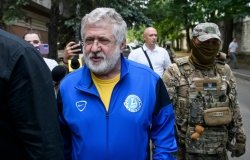Southern Sudan: Using Innovative Tools for Local Empowerment
“The low level of violence during the referendum is a testament to the strength of the Sudanese people,” stated Ambassador Loftis at a Woodrow Wilson Center Director’s Forum on January 14, 2011, co-sponsored by the Project on Leadership and Building State Capacity, and the Africa Program.
Overview
Ambassador Robert Loftis, Acting Coordinator Office of the Coordinator for Stabilization and Reconstruction US Department of State
Steve McDonald, Director, Africa Program
and The Project on Leadership and Building State Capacity
“The low level of violence during the referendum is a testament to the strength of the Sudanese people,” stated Ambassador Loftis at a Woodrow Wilson Center Director’s Forum on January 14, 2011, co-sponsored by the Project on Leadership and Building State Capacity, and the Africa Program. Ambassador Loftis based his presentation on his recent trip to Southern Sudan. He argued that the efforts of the Office of the Coordinator for Stabilization and Reconstruction’s (S/CRS) Civilian Response Corps (CRC) in Southern Sudan to establish diplomatic presence in the rural areas outside the southern capital of Juba and encourage sustained presence in less developed areas, was proof of the effectiveness of the CRC in supporting a country emerging from years of conflict.
Ambassador Loftis explained that the responsibility of the CRC in Sudan is to augment the work of the United States embassy and support its Chief of Mission in the field. The directive of the CRC is to help prevent a return to civil war, in part by providing US policymakers with a coherent analysis of the conflict dynamics of the country. These efforts are designed to push diplomats into being more involved on the ground.
He also explained that the CRC had both active and stand-by components. The latter is comprised of individuals from various US government agencies who are on call to go wherever they are needed within 48 hours. The former are US government employees as well, but who stay situated mainly in their home agencies. It is interesting to note that the concept for an active field component to the CRC arose from those who served in provincial reconstruction teams in Afghanistan. The lessons that they learned from that experience shaped the activity of the CRC in Sudan today. “We try to be a learning organization,” Ambassador Loftis stated. The CRC has been designed as a civilian-led effort there, whereas in both Afghanistan and Kyrgyzstan the efforts were led primarily by the military. He stressed that this was by no means a rejection of the effectiveness of military-led activities, but rather recognition that, depending on country situations, the civil/military mix can vary.
For example, US Special Envoy to Sudan General Scott Gration requested help from the CRC with the implementation process of the Sudanese Comprehensive Peace Plan (CPA), first by creating a conflict prevention and stabilization program, and second by assisting in the development of the US embassy in Juba. Members of the CRC also worked in Sudanese state capitals and travelled around the country to interact with locals and NGOs in order to encourage public participation and awareness about the CPA.
Hosted By

Africa Program
The Africa Program works to address the most critical issues facing Africa and US-Africa relations, build mutually beneficial US-Africa relations, and enhance knowledge and understanding about Africa in the United States. The Program achieves its mission through in-depth research and analyses, public discussion, working groups, and briefings that bring together policymakers, practitioners, and subject matter experts to analyze and offer practical options for tackling key challenges in Africa and in US-Africa relations. Read more
Thank you for your interest in this event. Please send any feedback or questions to our Events staff.










